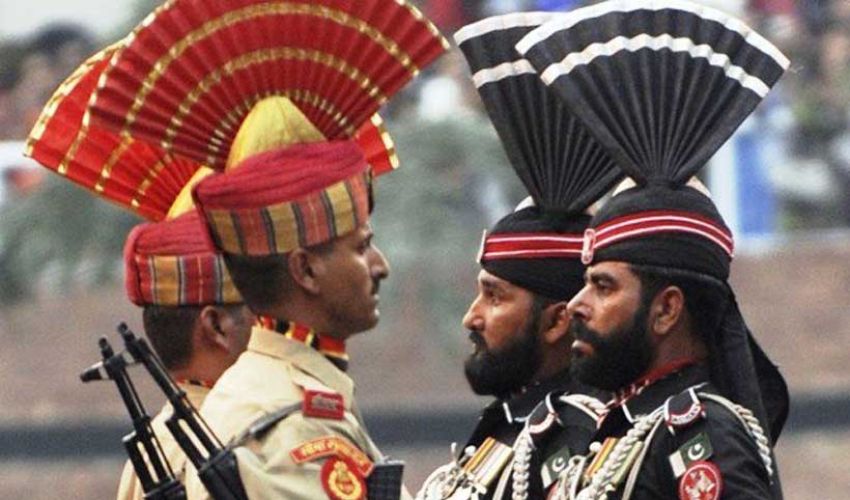As general elections are scheduled to be held on February 8, the Supreme Court of Pakistan (SCP) on Friday allowed Pakistan Tehreek-e-Insaf (PTI) President Pervaiz Elahi to contest the upcoming elections from the provincial assembly seat PP-32.
It is interesting to know that Pervaiz Elahi took back the appeals on two National Assembly seats.
Justice Mansoor Ali Shah led the division bench that heard the case in which the counsel of Pervez Elahi informed the court that his client withdrew from all contesting seats except PP-32.
Also, PTI leader Umar Aslam was granted permission to contest elections from the NA seat.
Justice Mansoor Ali Shah inquired why Omar Aslam's nomination papers were rejected. The court inquiry delved into the reasons behind the rejection of Umar Aslam's nomination papers.
Justice Mansoor Ali Shah questioned whether Umar Aslam had been declared a proclaimed offender by any court. It was revealed that Umar Aslam had taken protective bail, specifically on pre-arrest grounds, as highlighted by his lawyer Ali Zafar.
Must Read: Sanam Javed and Shaukat Basra get permission to contest elections from SC
Notably, one application for Umar Aslam's election candidacy was rejected, while another was approved, creating a legal paradox.
A division bench of SCP heard the cases of the appeals against rejected nomination papers of candidates by Returning Officers (ROs).
Justice Mansoor Ali Shah remarked on the fundamental right to participate in elections, stating that punishing any individual by depriving them of this right required careful consideration. The debate also touched upon the legal aspects of preventing a fugitive or an individual violating advertising laws from contesting elections.
Reference was made to Article 17, emphasizing that people hold paramount importance under fundamental human rights, as noted by Justice Athar Minallah.
Justice Mansoor Ali Shah advocated for letting the people of Pakistan decide their elected representatives.
The discussion further explored the clauses of Article 17, 62, and 63 that prevent a fugitive from participating in elections, with Justice Mansoor Ali Shah asserting the role of the Election Commission of Pakistan (ECP) or the courts in determining the status of an individual as an advertisement.
Questions were raised about the accountability of the ECP, with Justice Athar Minullah asserting that it must answer to the people of Pakistan.
Despite the commencement of ballot paper printing, concerns were expressed about depriving candidates of their basic rights, prompting a reflection on the decision-making process before the irreversible printing stage.
Justice Mansoor Ali Shah pointed out the need for foresight before printing, suggesting that anticipating legal challenges could have prevented the complications that subsequently arose in the courts.
Similarly, Pakistan Tehreek-e-Insaf (PTI) leader Tahir Sadiq was also allowed to contest the elections. Tahir Sadiq had submitted nomination papers from NA 49 Attock.
The Lahore High Court had rejected the nomination papers of Tahir Sadiq and filed an appeal against the decision of the LHC.
A three-member bench headed by Justice Mansoor Ali Shah conducted the hearing.
Also, Pakistan Tehreek-e-Insaf (PTI) candidates from NA-119, NA-120, and PP-150 Sanam Javed and NA-160 Shaukat Basra got permission from the Supreme Court of Pakistan (SCP) to contest elections in the upcoming elections rejecting the verdict of Returning Officers (ROs) of respective constituencies.
Arif Abbasi returns empty-handed
On the other hand, PTI leader Arif Abbasi faced a setback as his appeal against the rejection of nomination papers for PP-19 was dismissed. The apex court upheld the Election Tribunal's decision, citing critical factors that contributed to the dismissal.
The Supreme Court of Pakistan (SCP) revealed that the petitioner had two criminal cases against him wherein a detail that was not disclosed in the nomination papers. The omission raised concerns, and when questioned about his son's properties in London by the returning officer, the petitioner reportedly remained silent.
The SC remarked that two FIRs were registered against Arif Abbasi in the Waris Khan police station, a fact brought to light by the petitioner's lawyer during the proceedings.
Chief Justice Qazi Faiz Isa urged transparency, advising the petitioner to present the relevant documents and disclose all facts if intending to pursue the case. Justice Muhammad Ali Mazhar expressed concern over a person with two cases freely moving around the city.
Addressing the petitioner's decision not to seek bail in the trial court, Justice Muhammad Ali Mazhar questioned the rationale behind bypassing the standard legal process. The Chief Justice, recalling a recent case where bail was granted, emphasized the importance of proper preparation when making legal applications.
The petitioner's lawyer, Abdul Razzaq, argued that both criminal cases were mentioned in the affidavit, but the court seemed dissatisfied, with Chief Justice Qazi Faiz Isa pointing out the necessity of truthfulness in legal proceedings.
Ultimately, a three-member bench, headed by Chief Justice Qazi Faiz Isa, rejected Arif Abbasi's appeal, underscoring the significance of transparency and adherence to legal procedures in such matters.
Must Read:



























